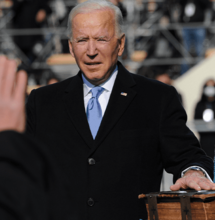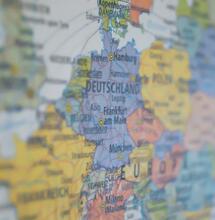Mexico Elections: Failure of Drug War Leaves Nation at a Crossroads
_72.jpg)
The issue no candidate dares to address is the cartel violence tearing the nation apart
SOURCE: www.rawstory.com AUTHOR: Ed Vulliamy,
'The Observer' On 1 July, Mexicans will vote in vital presidential elections. But the issue no candidate dares to address is the cartel violence tearing the nation apart. One after another, Mexico's presidential candidates sat in silence amid the grand setting of Chapúltepec Castle while, across the room, the leader of the country's movement of victims of drug war violence - a poet - chastised them.
"The 60,000 dead, the more than 20,000 who've disappeared, the hundreds of thousands of people displaced, wounded and hunted, the tens of thousands of widows and orphans that this stupid war against drugs is costing us, do not exist for you and your parties," Javier Sicilia accused. "For you, the national emergency does not exist." One after the other, the candidates promised action and showed concern, then they left. It was time to get back to the real business of running for president.
The meeting with Sicilia last month was unavoidable, given the moral weight of the movement he represents, but it was also the only time in the entire three-month campaign when the undisputed issue of the day was the drug war ravaging Mexico. Polls show that most Mexicans consider security, along with the economy, to be the two biggest issues facing their country, but neither has featured particularly heavily. "Everybody asks me where the security issue is.
Why the candidates don't talk about the economy. The elephant in the room is President Felipe Calderón's record, and that is hardly talked about," says pollster Jorge Buendía. In Ciudad Juárez, which has just lost its title as the world's most dangerous city, now ranked second, the chronicler of the violence, journalist Julián Cardona, says: "To look at the candidates speak, you would think they were talking about another country."
But whatever the politicians' speeches, Mexicans know that the country must take urgent measures now to try to put an end to the appalling violence if it is to claim the place in the world its economy justifies. And although Mexico is umbilically tied to the US war on drugs, and fights on the frontline of that war, senior Mexican diplomatic officials suggest to the Observer in private that, whoever wins the election, this must change; that there must be a major rethink and a shift towards initiatives in Latin America that challenge the "war on drugs" to which the US remains committed.
Mexico's ambassador to London, Eduardo Medina Mora, a former attorney general, speaking to the Observer yesterday, said: "I dislike the term ‘war on drugs' - it is an over-simplification of a problem that is extremely complex. We have to increase our efforts, deepen our understanding of the problem, look back at what we have done, and correct it.
We have to ask ourselves: ‘Can there be a better way?'" He added: "We have to look at every aspect: the health aspects and the economic aspects as well as the rule of law. Our priority must be to assure peace for our citizens." Ahead in the polls is Enrique Peña Nieto of the Institutional Revolutionary party (PRI), which ruled Mexico for seven decades until 2000. His main campaign slogan - "Change" - reflects his efforts to construct an image of an effectiveness and reliability that contrasts with the widespread sense that under the rival, incumbent National Action party Mexico has lost its way, not least because of the drug wars.
"This is my pledge," Peña Nieto says, looking straight at the camera, "and you know that I am going to fulfil it." Running second is leftwinger Andrés Manuel López Obrador, who lost the last vote by a whisker; he heads the Party of the Democratic Revolution, promising "real change" and insisting he is the only candidate who is honest and genuinely cares about the troubles of the country and its population, especially its poor. Trailing the polls, in the awkward position of being the candidate of a governing party that has manifestly failed to get the country under control, Josefina Vázquez Mota claims to be "different", though it is unclear in what way.
The drug wars are taking place against the backdrop of an economy that has responded robustly to the global crisis. Mexico is becoming a manufacturing powerhouse at a time of vindication for those countries that kept or developed their industrial bases, unlike its crisis-ridden giant northern neighbour. Its aeronautical and auto industries have helped propel growth rates since the crisis of 2008 and recession in 2009, with manufactured goods accounting for 84% of exports.
Mexico aims for trade to account for 85% of GDP by 2017. So the violence is a ball and chain around the ankles of a country with considerable potential. The hope among so many of the electorate, exhausted by the violence, is that the PRI, if it wins, will change gear with regard to America's "war on drugs", maybe even forge a coupling of overt force with other forms of coercion and entreaty.
It is of significance that Peña Nieto has co-opted as his main security adviser Oscar Naranjo, the recently retired Colombian police chief who played a major role in confronting and decommissioning the cocaine syndicates. The drug policy expert Alejandro Hope argues that the old arrangement between the PRI and the cartels creates a "possible model, but not a very good one".
He points instead to the "so-called demobilisation, disarmament and reintegration in Colombia, initially conceived as a mechanism for reintegrating guerrilla groups... and used to pacify criminal groups". It is beyond question that during its seven-decade reign over Mexico the PRI operated a modus operandi of conviviality with the cartels. The rationale was that individual politicians and law enforcement officers would benefit, of course, but there was a wider motive - that which in Italy is known as the pax mafiosa, the mafia's peace.
Broadly speaking, this means that a modicum of understanding between the cartels and government - national, regional and local - allows for a sufficiently blind official eye to products rolling across the border into the US, in return for which the cartels maintain a balance of power between each other, respect each other's "plazas", or turf, and a general peace. This is what prevailed throughout the 1970s and 1980s, when Mexican crime syndicates were generally organised within a pyramidal structure under the "don" of drug trafficking, Félix Gallardo, and his formidable Guadalajara cartel.
But in 1989, under pressure from the US, the Mexican government arrested Gallardo, igniting a war for succession to his mantle, and for sections of the border in which he had ordained control. The present savagery began in December 2006, when Calderón sent in the army to try to pacify the battle at the fulcrum of border trade - both illegal and illegal - at Nuevo Laredo, between the Sinaloa cartel, heir to Gallardo's syndicate, and the paramilitary enforcement wing of the Gulf cartel, Los Zetas, now a terrifying cartel in its own right.
Through the ensuing war, Mexico has been rife with rumours that Calderón favoured the Sinaloa cartel and protected its elusive, fugitive leader, Joaquín Guzmán, the world's richest and biggest mafia criminal. According to some US intelligence estimates, only 12% of those arrested since 2006 belong to the main Sinaloa cartel. In the runup to the election, however, two Sinaloa leaders have been arrested, one last week. Accordingly, politics in those areas affected by the drug war - the US border states, Veracruz, Michoacán, Zacatecas and elsewhere - became contaminated by the cartels' positioning themselves politically. As Rebecca Rodríguez, a human rights worker in war-torn Reynosa in the border state of Tamaulipas, says: "There are elections between the PRI and PAN, but they are no more than Calderón and the army backing the PAN, so the narcos back the PRI.
You have the army on one side, the narcos and police on the other, and - in the middle - the economy, education, political life collapsing, normal communication broken down," said Rodríguez. The narco cartels have moved on from the 80s. They are pioneers of modern capitalism, and operate a fragmented free market, outsourcing to a miasma of killing interests and street gangs on which it would be impossible for even cartel leaders to impose a pax mafiosa. The cartels have "substituted the old pyramidal chain of command for the same concession or franchising system as any other corporation", says Ignacio Alvarez Alvarado, a reporter from Ciudad Juárez.
"Like a good modern capitalist, the cartel outsources, it puts contracts out to tender, to give other people a chance to compete. They're a business like any other, and the cartels have got much more democratic in the modern, capitalist sense: outsourced, meritocratic and opportunistic," he adds, drolly. There has been a generational as well as economic evolution: the Zetas epitomise a new "style" of narco that is working-class, uninterested in patronage and the "honour" of the classical mafia represented by Gallardo or the Sicilian "godfather" figure. They are a form of insurgency and extreme violence is their "brand"; they operate across the internet with sick, black humour.
They are less interested in playing politics than getting politics to play their game. "It used to be," says a campaigner in Tamaulipas, Mario Trevino, "that the politicians told the narcos what to do. Now the narcos tell the politicians what to do." There is of course a long-term and genuinely radical course a new Mexican government could take: to shift the gear of its fight against drug cartels closer to the cogent initiatives emerging from Latin America, and notably Colombia, where President Juan Santos launched his call for a complete rethink of global drug policy to incorporate social issues and an assault on the laundering of the vast drug profits by banks in the US and Europe.
This is extremely delicate for a country so dependent on the US and a recipient of a vast military aid budget. But, crucially, there are signs that, for all Mexico's bounden relationship to the US, and its acceptance of military aid along with political heavy-handedness, many of those steering the policy of whatever government comes next are anxious to move towards the Colombian position.
Medina Mora speaks with a blend of care and forthrightness. "If we want to face the problem," he says, "we have to have a thorough understanding of what that problem is, and we have to have a leadership that is committed to doing just that. This is not only an issue of drug trafficking, it is an issue of security institutions that are structurally weak, and cannot guarantee peace and security to Mexican people in the areas affected.
This is where we want to go: to work on the police, on the judicial system, towards social cohesion and creating opportunities and jobs for the young people who are vulnerable to the criminals - this is quite clear now. We have to re-examine what we have done.
We will have to learn from the Colombian achievements, and from Colombian mistakes." A former attorney general, Mora adds: "Consumption and possession of drugs is not criminal in Mexico, and this is right, but it doesn't end there, and I think it's wrong to talk about blanket legalisation - again, this oversimplification of a very, very complex issue." In a clear reference to Mexico's northern neighbour, the ambassador said: "There has to be an acceptance of responsibility by countries at the consuming end - with a high drug consumption rate - and countries which cannot control their flow of weapons, and countries at the end of the value-added chain - which is always closer to the consumer in any business."
But on the matter of money-laundering, he added: "Of course, the money flows to the US bankers, but it is not enough to be always blaming Wall Street - we all have to do something about the value-added end of the chain, again: another very complex issue that needs to be evaluated.
This is how the debate should be: what are the policy choices? And to accept that this is not a matter of good and bad, but bad and worse, worse and much worse." A senior Mexican diplomatic official admitted to the Observer last week: "What we did was to implement only the enforcement side of the drugs crisis. We did not implement a strategy for going after the money-laundering. We did not implement a strategy for restoring the social fabric.
Now our priorities have to be: 1, bring peace to the Mexicans in their communities; 2, break the organised crime business model; and 3, turn this from being a national security threat to a public security issue." And another senior government official said: "Let's have a full, global debate on drug policy. Not on legalisation - that will just polarise everyone again. Let's have a debate that is not ideological, not moral or emotional, but expert and scientific. Let's get the facts, and sit the Americans down to discuss them. And if the Americans close their minds, let's try to open them."



